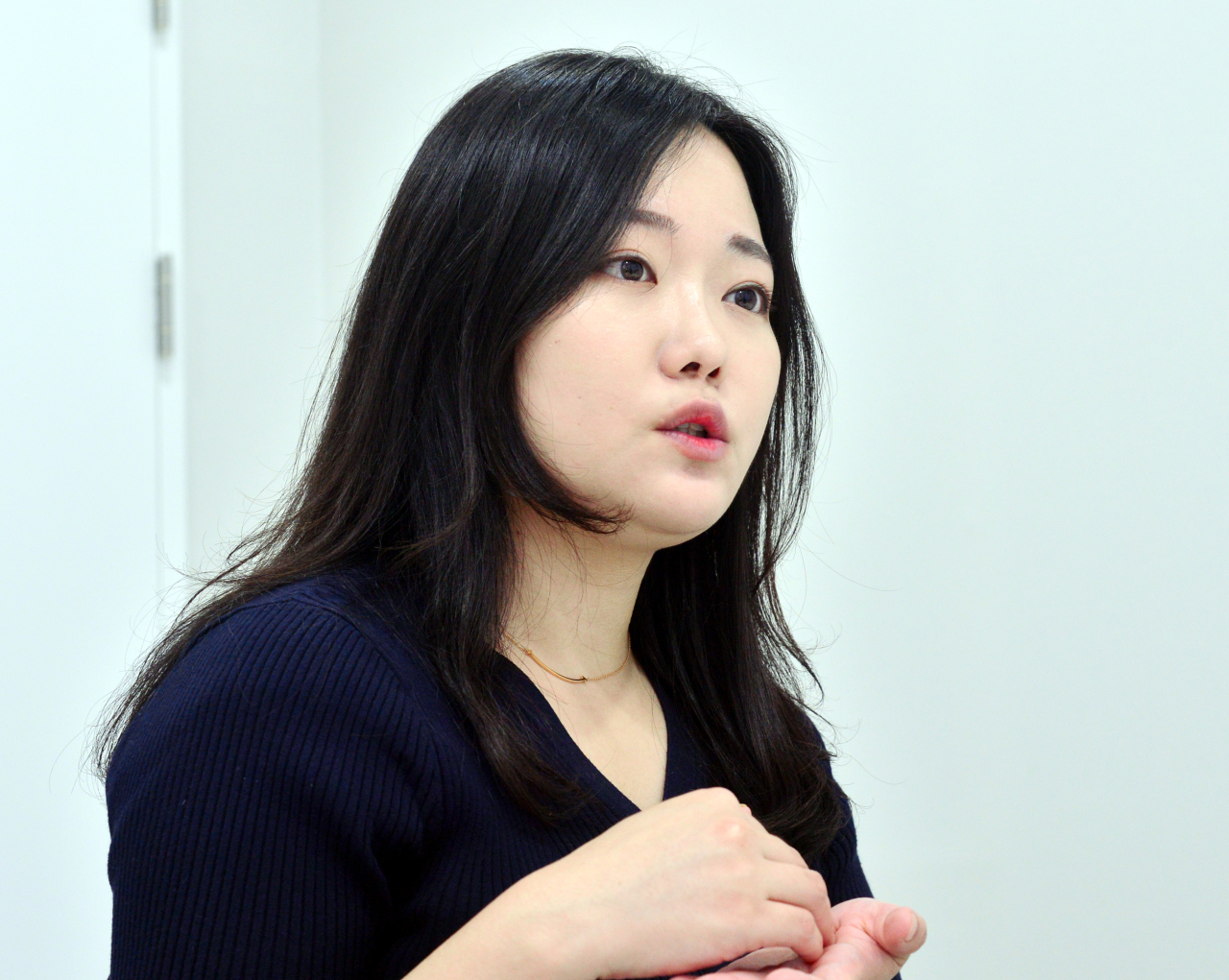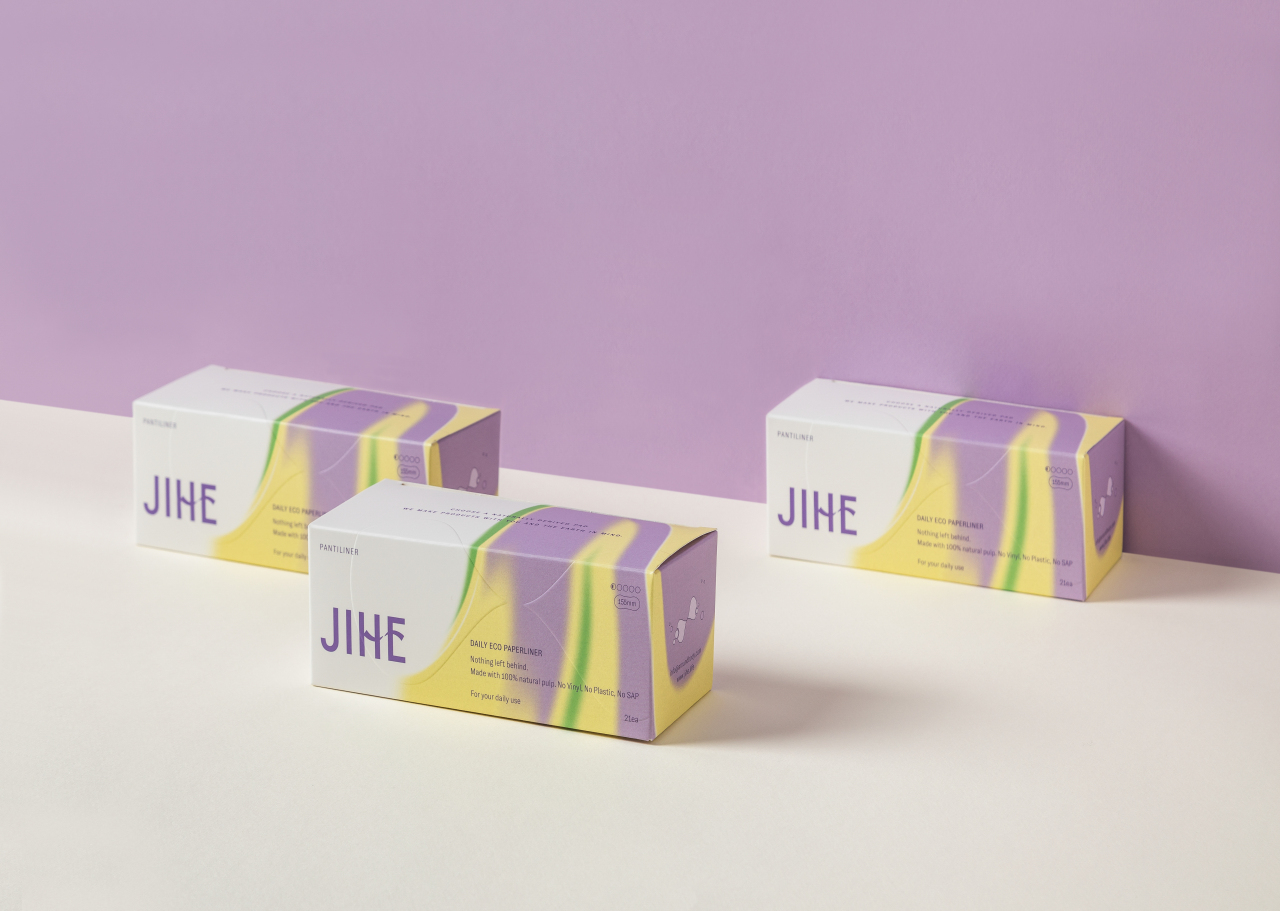 |
Around Body CEO Kim Ji-yeon talks with the Korea Herald. (Park Hyun-koo/The Korea Herald) |
A woman gets through roughly 14,000 period pads over the course of her life, if that’s the menstrual product she chooses.
These disposable pads are about 90 percent polyester -- a type of plastic that is also used to make other everyday items like fishnets, plastic bottles and face masks. As a material, it is versatile and cheap, but it also takes around 450 years to decompose.
With more women becoming aware of the global plastic waste problem, more options are being made available abroad, like menstrual cups and reusable pads. But it’s a different story here in South Korea.
Options are limited here, where single-use disposable pads account for some 80 percent of the menstrual product market, said Kim Ji-yeon, CEO of startup Around Body.
"When I was an office worker, disposable pads were my only option because I had to use public restrooms. I felt guilty to the environment every time I had to throw the pads away," said the 34-year-old entrepreneur as she explained what led her into the eco-friendly pad business.
"In a world where we send rockets to the moon, why are pads still unchanged?"
In 2018, Kim founded Around Body, the first company in Korea to produce a period pad that dissolves in water.
The product, the Jihe pad, is made of a specially processed pulp developed by a Gangwon University lab.
The pulp is mixed and coated with natural oil, which creates a waterproof barrier that lasts about four hours. In water, the oil and the pulp naturally separate from one another, making it possible to flush the pad down the toilet.
 |
Around Body’s Jihe Eco Paper Liner. (Around Body) |
While the technology was there, putting it to use in a feasible product was not an easy journey.
Her biggest hurdle, she said, was convincing people in the industry, who were reluctant to accept change.
Disposable pads are a necessity, and manufacturers questioned whether it was worth the effort and money to develop something new.
"It was challenging to convince both investors and factory owners. No one in the industry saw the need for an upgraded menstrual pad because (as essentials) they are going to sell anyway," Kim said.
After being turned down by multiple venture capital investors and factories, the company produced its first batch of Jihe pads in October last year.
The product is slowly drawing interest from women of all ages, Kim said. It even entered the US e-commerce platform Amazon this year.
"From the first factory owner who gave me the chance to create a prototype of our product to the first seed investor, all the people who helped us in the beginning were women," she said.
Around Body’s ultimate goal is, as its name suggests, to encourage more women to talk about their health and their bodies, explained Kim.
"Most of the conversation women have about our bodies centers on how to make them look better, like through cosmetic surgery or going on a diet. Seldom do we talk about genuine health," she said.
The company is now developing an antibacterial period pad and a disposable pad that can make simple health diagnoses from menstrual blood. The product’s goal is to have women visit their OB-GYN clinics more often.
"The market for period products (in Korea) has advanced immensely, but there’s still not enough information (on disposable pads) made available to consumers. We want to be a company that provides adequate information that can help consumers make wise decisions about their health and bodies," Kim said.
By Kang Jae-eun (
kang.jaeeun@heraldcorp.com)









